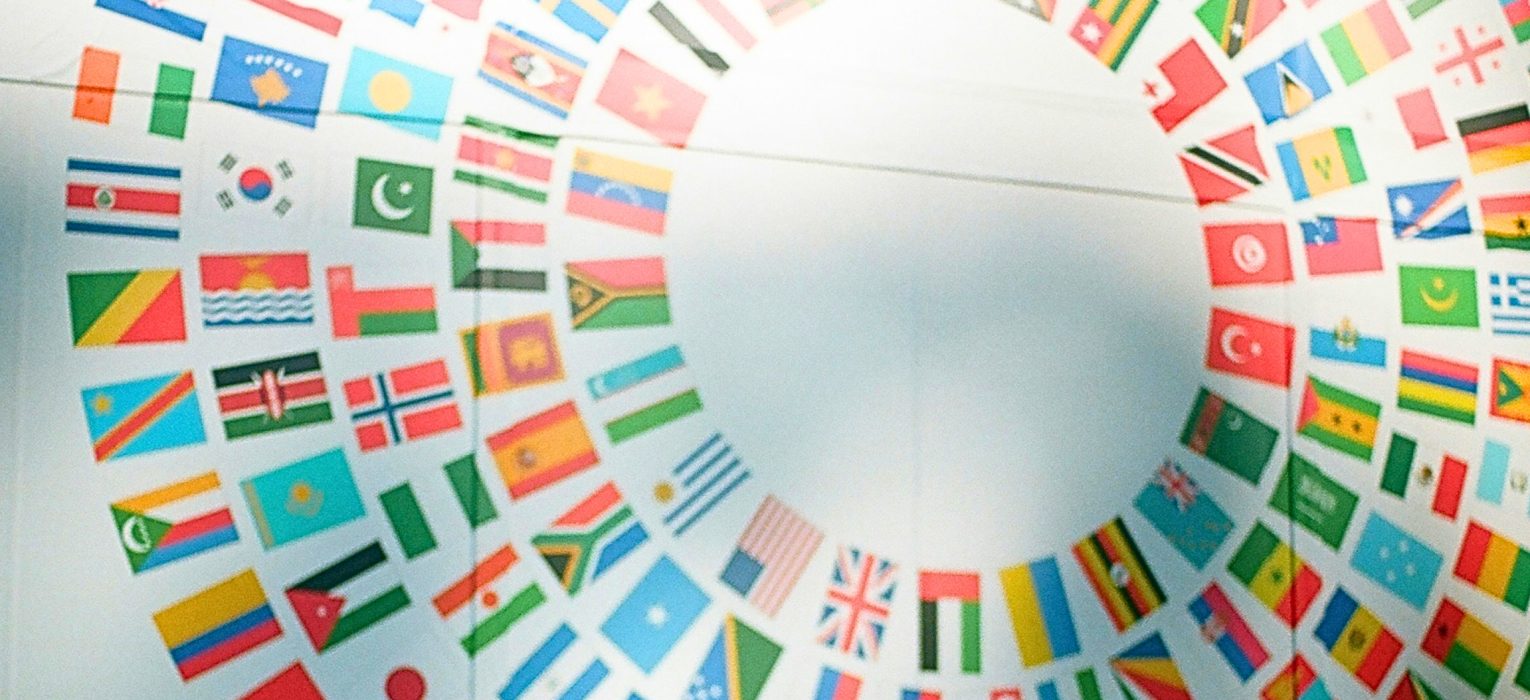Some of the most interesting ideas in academia are unobtainable for certain communities—not because of being top secret, but because of the language they are written in.
I learned a few years ago that if you want the best recipe for any Latin American dish, you should look up “recetas,” not “recipes.” When you look up a recipe in the native language, it is simply better, because it is directly connected to the culture it’s from.
But say you’re from a country that doesn’t speak English, and you’re looking for academic research in your native language. Turns out, the search might be a bit harder. Many obstacles limit academic scholars from publishing in languages other than English, including a simple preference for writing professionally in English or a lack of proper resources or peer reviewers for other languages. These obstacles can have profound effects on the communities and scholars who need to read the research. In her article “Multilingual Scholarly Publishing: Exploring the Perceptions, Attitudes, and Experiences of Plurilingual Scholars in Foreign Language Publication,” Bettina Schnell explains why.
THE RESEARCH
In this study, Schnell surveyed 115 plurilingual translation scholars and linguists, who are proficient in more than one language. She asked 44 questions about topics including their experiences with publishing in their native languages or languages other than English, their perspectives on the peer review process, and their motivations on whether or not to publish in another language.
The survey results indicate that 78.9% of the participants reported their academic publishing being done in English. While many of them reported publishing in English, 88.2% of the participants said that they wished there were more language support in the publishing process for scholars seeking to publish in a non-English language.
Some said that publishing in a foreign language, such as English, is more straightforward for them than publishing in their native language. Others weren’t able to publish articles in their native language for their target audience who speaks that language, because of the need to publish and reach the larger English-speaking audience. Some participants explained that “high-impact journals and renowned publishing companies in their research domain only accept manuscripts in English, journals and publishing companies do not accept manuscripts in the respondents’ native languages, and the perceived lower prestige of journals in the respondents’ native languages” (Schnell 2024, 179).
Other participants reported challenges occurring in their past experiences publishing in non-English languages. Some reported receiving unfair criticism of translated works, even when they had already been checked by native speakers, saying there was “prevalent skepticism regarding transparency and fairness in the peer review process” (Schnell 2024, 190 ).
Some participants expressed concern about “the preservation of linguistic diversity and the future of other lesser-used languages in scholarly publishing as languages of science” (Schnell 2024, 188). One participant, a native Czech speaker, specifically explained the potential impact on the quality of science-based writing in diverse languages. They said that the obsession with English-only publications “may significantly affect the quality of academic writing in languages other than English, gradually leading to the demise of academic style and discourse in those languages.”
“The conclusions drawn from the study aim to foster linguistic inclusivity, advocating for the recognition and promotion of multilingualism within the scholarly publishing landscape.”
Schnell (2024)
THE IMPLICATIONS
For professionals in editing and publishing, this study illustrates the importance of promoting linguistic inclusivity and shows some of the challenges that multilingual writers face. The study indicates that researchers need more support for publishing in non-English languages, so editors and publishers could take steps to create and support better resources for translation and language assistance, and seek out multilingual, underrepresented voices.
There may currently be less prestige given to publications of non-English journals, but researchers should continue to write and publish for them, so that the publications can be built up, and linguistic diversity can be preserved in scientific publications. Researchers can also try to publish in multiple languages, to increase the visibility of their works in not only English-speaking communities but others as well. After all, to have the most impact, doesn’t it make sense to publish as widely as possible?
The peer-review process seems to have some injustice currently, but we can understand a need for compassion and understanding when writing, editing, or publishing research in other languages or research that has been translated into English from other languages. When reviewers encounter language that feels unfamiliar, they can ask questions and work to understand. Understanding may take a little more effort, but reviewers can not only keep in mind their obligation to provide unbiased and objective reviews but also know that their effort opens up a world of possibilities for information and connection.
The place for non-English dialects may be diminishing, if steps are not taken to provide resources for publication in these languages. When writing, editing, or publishing research in other languages or research that has been translated into English from other languages, researchers and publishers can understand the effects that may occur should we choose only to publish in English. By publishing in multiple languages, we can build connections to diverse perspectives and people, contributing to the expansion of knowledge and thereby fulfilling the main goal of academic writing.
To learn more about multilingual academic publishing, read the full article:
Schnell, Bettina. 2024. “Multilingual Scholarly Publishing: Exploring the Perceptions, Attitudes, and Experiences of Plurilingual Scholars in Foreign Language Publication.” Journal of Electronic Publishing 27 no. 1. https://doi.org/10.3998/jep.5416.
—Brianne Barrus, Editing Research
FEATURE IMAGE BY MARKUS KRISETYA
Find more research
Take a look at Abby Wadsworth Tree’s Editing Research article for more tips on how to edit with non-native English speakers: “How to Improve the Editing Experience for Non-native English Speakers.”
To learn more about technology in multilingual scholarly articles, read Lynne Bowker’s (2024) article: “Multilingualism in Scholarly Communication: How Far Can Technology Take Us and What Else Can We Do?” The Journal of Electronic Publishing 27 No 1 https://doi.org/10.3998/jep.6262.





Leah
I agree with this. Finding a way to help authors who speak different languages get their works published in their language would help build connections globally, especially as more works and studies are available in diverse languages. I love this. Thanks for sharing.